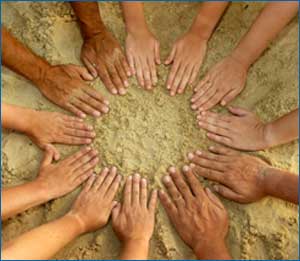
When a person sees more value in the beauty of nature than in a nice, juicy paycheck, there are two possible conclusions most people would come to: the person is either a tree-hugging fruitcake, or he/she has reached an important level of personal growth and maturity. In which case, we are all a little nutty – or self-actualized, depending on one’s point of view.
Based on a study we conducted using the VAPro (Values Profile), the importance of money and power on a personal level is only moderate at best, and has actually taken a backseat to social values. This revelation comes on the tail end of another study we conducted on career motivation, which also showed a drop in the desire for money and power.
We assessed 6 categories of values: Social, Aesthetic, Theoretical, Traditional, Realistic, and Political, broken down into 34 different facets. The top five values according to our data include the following (on a scale from 0 to 100, with a higher score indicating greater importance):
- Empathy (score of 78): Importance of understanding others by seeing the world through their eyes. Putting oneself into other people’s “shoes” in order to grasp and appreciate their feelings and opinions.
- Family and Friends (score of 74): Importance of relationships with loved ones. Desire to devote a great deal of time and attention to the important people in one’s life.
- Appreciation of Beauty (score of 73): Importance of seeing and appreciating the beauty in one’s surroundings – and an understanding that beauty comes in many forms.
- Hard work/Diligence (score of 73): Importance of being productive and putting the effort and dedication into accomplishing something great.
- Altruism (score of 72): Importance of helping others. The desire to make the world a better place.
Most people would assume that the personal value of money would vary depending on whether a person is financially well-off or not, but this wasn’t the case at all. In fact, when we compared the value scores of people with upper and lower socio-economic status, their results on the Financial Security value were exactly the same, with a score 54 – indicating that this value is only of moderate importance in people’s lives, regardless of their income tax bracket. Both groups placed higher importance on social values. Not that’s amazing – and refreshing too.
This sort of flies in the face of the belief that social media is taking the place of, or making it difficult to create real and meaningful social connections. Granted, social media does have several disadvantages. No matter where you go, you’ll likely see people with their heads down, glued to their phones. If you walk into a restaurant, you’ll see couples who are supposed to be on a date or parents and children having a “family” meal, where at least one member of the party will be engaged with their phone rather than actual conversation. Social media does, however, allow people to cross barriers of distance more than ever before. That doesn’t mean it should replace one-on-one contact – only enhance it.
Here are some other interesting tidbits from our study:
Gender
- Women in general had stronger social values, particularly Family & Friends (score of 79 vs. 68 for men), Altruism (77 vs. 65), Socializing (71 vs. 61), and Empathy (81 vs. 71).
- Men placed a higher value on Scientific Exploration – the importance of discovering new technologies, inventions, etc. (59 vs. 50 for women).
- Women placed a higher value on developing a career than men did (61 vs. 56).
Age
- In terms of social values, younger age groups valued Family & Friends (77 vs. 71) and Socializing (71 vs. 62), while older age groups valued Altruism (76 vs. 72) and Empathy (81 vs. 76).
- In terms of aesthetics, younger age groups valued creativity and the ability to express themselves creatively (57 vs. 48).
- Younger age groups had stronger political values, particularly in terms of Competitiveness (50 vs. 31), Recognition (50 vs. 31), and developing a sense of Pride (50 vs. 31).
Job Satisfaction
Those who are happy with their job outscored their less satisfied counterparts on every value assessed, the most notable differences being in:
- Intellectual Creativity (Aesthetic value) – score of 62 vs. 55
- Knowledge (Theoretical value) – score of 66 vs. 59
- Ethics/Morals (Traditional value) – score of 71 vs. 65
- Hard work/Diligence (Realistic value) – score of 78 vs. 70
- Career Life (Political value) – score of 63 vs. 54
- Power (Political value) – score of 53 vs. 46
- Recognition (Political value) – score of 50 vs. 42
- Pride (Political value) – score of 54 vs. 47
If you’re interested in using VAPro (Values Profile) or other tests for HR purposes, request a free trial of ARCH Profile.
Want to learn more about using psychological tests for hiring, leadership development, career development or talent retention? Download our free eBook loaded with down-to-earth information about psychological testing for HR purposes.


